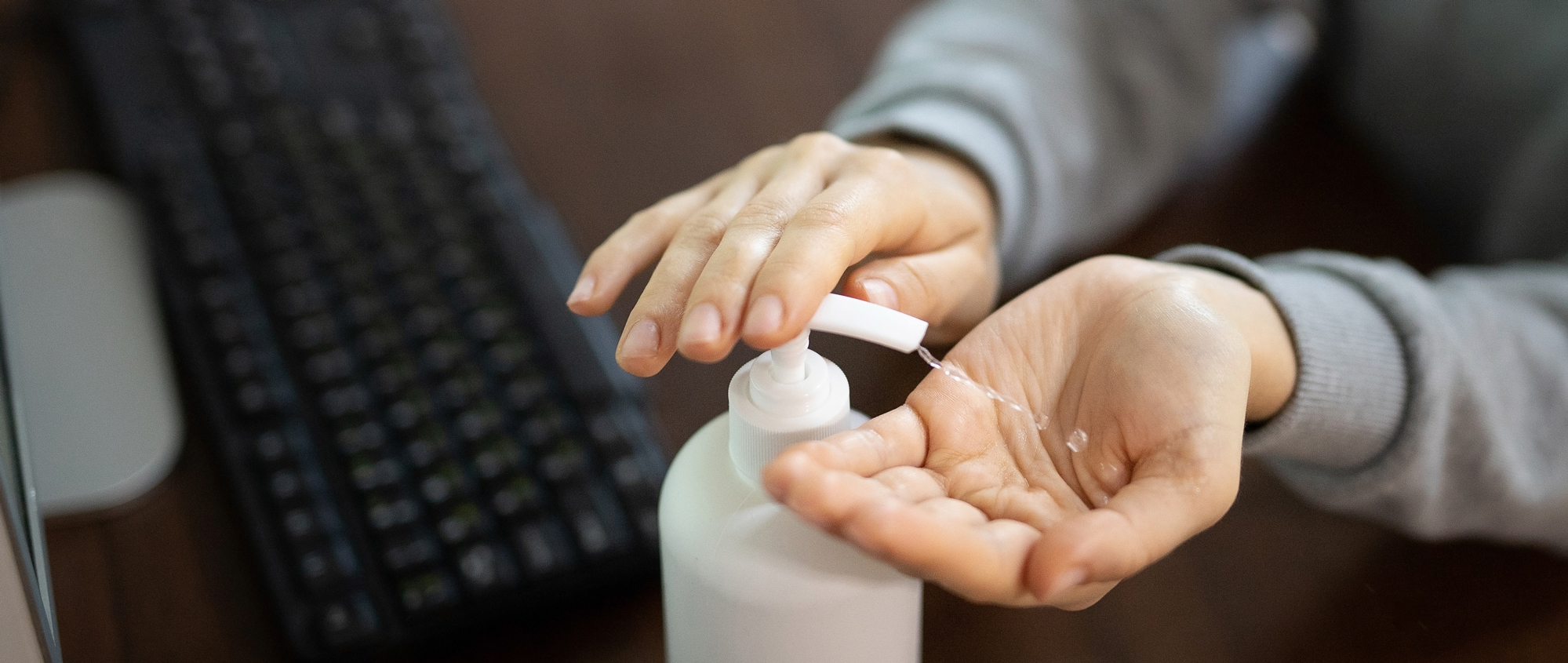
Clean hands are a key to health. However, in light of increasingly strict hygiene requirements, it's worth thinking about how to keep your hands healthy.
At the beginning of the 20th century, there was a slow adoption of outhouses in Estonia—there were few toilets in farm households, and even the few that existed were not used enthusiastically. It took intensive awareness campaigns and strict regulations for Estonians to finally learn to use a "good place." Now, 100 years later, we are finally mastering handwashing, jokes cultural historian Marju Kõivupuu: "Life teaches us."
Long and thorough handwashing with soap is indeed considered one of the most effective ways to prevent major outbreaks of viruses.
Although floral-scented, foamy soap may seem harmless, its amphiphilic molecules break the virus down like Lego blocks: first, the virus's protective layer of fat and protein is torn apart, making it easy to wash away even the particles hiding in the micro-wrinkles of the skin. Washing with just water, however, leaves the virus's outer shell intact, allowing it to maintain its grip.
The power of soap lies in its amphiphilic molecules, which are always in a state of identity crisis. One end of the molecule is hydrophilic, meaning it is "drawn" to water, while the other end is hydrophobic, meaning it tries to avoid water and instead seeks out fats. This is why, when one end of the soap molecule breaks off a piece of the virus's protective fat layer, the other end immediately surrounds it with a water bubble. Within about 20 seconds, the virus is broken down and rendered harmless.
The cleaner praises cleanliness
In addition to soap, we have added a multitude of industrial disinfectants—sanitizers— to our preventive arsenal this year. These are essentially biocides, compounds that carry out what could be considered mass extermination of harmful organisms.
While in everyday language we use terms like "disinfectant" and "antiseptic" interchangeably, there is a difference: products used on human skin are antiseptics, while products used on inanimate surfaces are disinfectants.
There is also a fundamental difference between disinfection and sterilization: both attack viruses, but only sterilization destroys bacterial spores.
If you have a disinfectant at home that has passed its expiration date, it usually does not pose an immediate danger. However, your health could be indirectly at risk if you continue to use the product for its intended purpose despite the expired date.
The smell may seem just as strong as before, but the biocide in the liquid has lost its activity and is no longer effective. Therefore, expired disinfectant should not be trusted.
What to do with an expired product? If there are no warnings or labels about environmental hazards on the packaging, you can dilute it with water and pour it down the sink.
Does disinfectant harm your skin?
Constant hand cleaning is essential during the pandemic, but it can be tough on the skin. Comparing the most common types of antiseptics—gel, spray, and wipes—dermatologist Ave Vahlberg says that gel is the gentlest on the hands, as it may contain glycerin, which protects the skin's natural lipid barrier.
She emphasizes that in addition to washing and disinfecting hands, moisturizing should be incorporated into your hygiene routine: "Ideally, use basic creams available over-the-counter in pharmacies, and apply them several times throughout the day. Definitely apply them at night right before bed, as the cream has all night to take effect."
Vahlberg reminds us that rings should be removed during all hand care procedures, as disinfectant residue can accumulate underneath them and cause irritation, known as contact dermatitis. For very dry hands, after applying cream (always gently patting, never rubbing or scrubbing!), you can wear cotton gloves. This ensures that the cream stays in contact with the skin rather than being absorbed into bedding.
If the skin does not get relief, a chronic condition could develop that cannot be cured. "Constant contact with water and cleaning agents can lead to sensitization, and in the future, even brief exposure may trigger allergic contact dermatitis."
Disinfectant is a reflection of the skin
Allergies to disinfectants are also monitored at the population level, and depending on research results, the European Medicines Agency often issues new regulations. "Our formulations are constantly changing," confirms Maris Millner, head of the laboratory at the Estonian disinfectant manufacturer Chemi-Pharm. "The regulations are mainly based on additional studies of active ingredients when negative effects on the human body or the environment have been discovered."
One biocide recently added to the list of substances banned in products for human skin use is triclosan. "It was found that widespread use of triclosan can increase bacterial cross-resistance to important antibiotics. Many compounds have also been removed from disinfectant production because they persist in the environment too long and pollute soil and water," Millner stated.